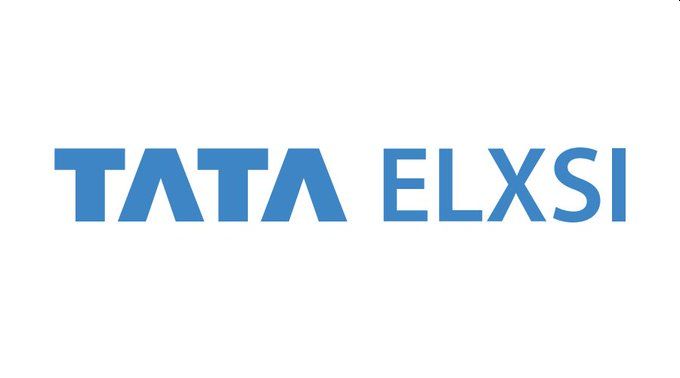The Technological Sector: A Deep Dive into the Engine of Modern Innovation
 Vanshika Shetty
Vanshika Shetty
The technological sector, often referred to simply as "tech," is a dynamic and rapidly evolving industry that has become a cornerstone of modern economies worldwide. It encompasses a broad range of activities, from the development of cutting-edge software and hardware to the provision of innovative services and solutions that transform how we live, work, and interact. The tech industry is pivotal for several reasons: it is a significant driver of economic growth, generating billions in revenue and creating millions of jobs worldwide, with the global IT industry expected to reach a market value of $5 trillion by 2021. Technology fosters innovation across various fields, including healthcare, education, finance, and manufacturing, enabling the development of new products and services that enhance efficiency and productivity. Additionally, technology connects people and businesses across the globe, with the internet, smartphones, and social media platforms revolutionizing communication, breaking down geographical barriers, and fostering global collaboration. Furthermore, technological advancements improve the quality of life by providing solutions to everyday problems, from smart home devices to advanced medical technologies, enhancing convenience, safety, and health.
Key Sub-Sectors of the Technological Sector
The technological sector is diverse, comprising several key sub-sectors. Information Technology (IT) Services involve the use of technology to support and manage business operations, including software development, system integration, and IT consulting. Hardware Manufacturing focuses on producing physical devices and components, such as computers, peripherals, semiconductors, and consumer electronics like smartphones and wearable devices. Telecommunications encompasses the transmission of data over distances, including mobile networks, broadband internet, and satellite communication. E-commerce and Internet Services cover companies operating online platforms for buying and selling goods and services, such as online retailers (e.g., Amazon, Alibaba), digital payment platforms (e.g., PayPal, Stripe), and cloud computing services (e.g., AWS, Google Cloud, Microsoft Azure). Artificial Intelligence and Machine Learning revolutionize industries by enabling machines to learn from data and make decisions, with applications in predictive analytics, automation, and natural language processing. Cybersecurity focuses on protecting systems, networks, and data from cyberattacks, covering areas like network security, information security, and cyber forensics.
Recent Trends in the Technological Sector
The tech industry is continually evolving, driven by innovation and changing consumer needs. Recent trends include the rise of artificial intelligence (AI), which is becoming more prevalent across various industries, from customer service chatbots to AI-driven analytics in healthcare, with companies investing heavily in AI research and development to stay competitive. The expansion of 5G networks promises faster internet speeds, lower latency, and more reliable connections, enabling new applications such as smart cities, autonomous vehicles, and enhanced IoT capabilities. Cloud computing continues to grow as businesses seek scalable and cost-effective IT solutions, a trend accelerated by the COVID-19 pandemic, highlighting the need for remote work capabilities and flexible IT infrastructure. Increased focus on cybersecurity has become a top priority for businesses and governments due to the rise in cyber threats, leading to a growing demand for advanced security solutions and skilled cybersecurity professionals. Advancements in quantum computing, which leverages the principles of quantum mechanics, promise to solve complex problems currently intractable for classical computers, potentially revolutionizing fields such as cryptography, material science, and drug discovery. Lastly, the adoption of augmented reality (AR) and virtual reality (VR) technologies is expanding beyond gaming and entertainment into education, healthcare, real estate, and other industries, providing immersive experiences and enhancing training and visualization.
Challenges Facing the Technological Sector
Despite its many advancements, the tech industry faces several challenges. Regulatory and compliance issues arise as technology evolves faster than regulatory frameworks, requiring tech companies to navigate complex regulations related to data privacy, intellectual property, and antitrust laws, which can be costly and time-consuming. Cybersecurity threats are increasingly sophisticated, posing significant risks to businesses and individuals, necessitating robust and continuously updated cybersecurity measures that can be expensive. The industry also faces a talent shortage, particularly in high-demand areas like AI, cybersecurity, and data science, making it difficult for companies to find and retain qualified employees, driving up salaries, and increasing competition. Ethical concerns are prominent, with rapid technological advancement raising questions about privacy, bias, and the impact on employment, such as AI algorithms perpetuating biases and automation leading to job displacement. Additionally, the tech industry has a significant environmental footprint, from the production of electronic devices to the energy consumption of data centers, putting pressure on companies to adopt sustainable practices and reduce their environmental impact.
Conclusion
The technological sector is a dynamic and ever-evolving industry that plays a crucial role in shaping the future. Its significance extends beyond economic growth, driving innovation, enhancing global connectivity, and improving the quality of life. The diverse sub-sectors, from IT services to AI and machine learning, each contribute uniquely to the industry's overall impact. Recent trends, such as the rise of AI, the expansion of 5G networks, and the growth of cloud computing, highlight the industry's continuous evolution. However, challenges like regulatory issues, cybersecurity threats, and talent shortages need to be addressed to sustain growth and innovation. Looking ahead, the future of the tech industry is promising, with continued advancements in AI, IoT, edge computing, and biotechnology. As the industry navigates its challenges and leverages new opportunities, it will continue to be a driving force in shaping a better, more connected, and innovative world.
Subscribe to my newsletter
Read articles from Vanshika Shetty directly inside your inbox. Subscribe to the newsletter, and don't miss out.
Written by
